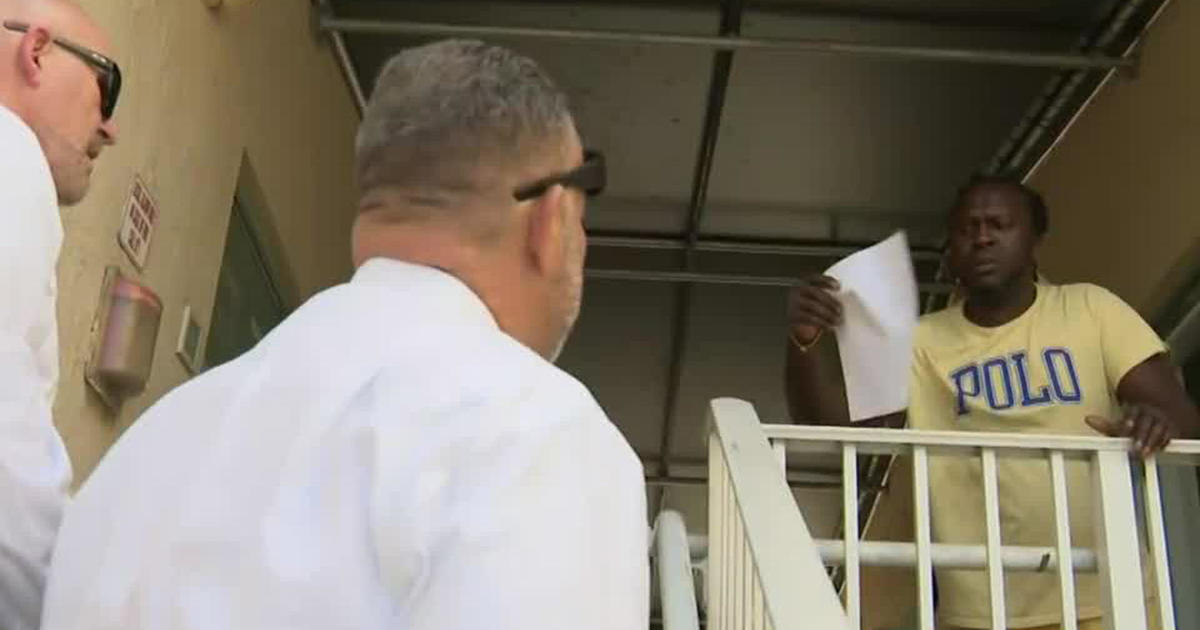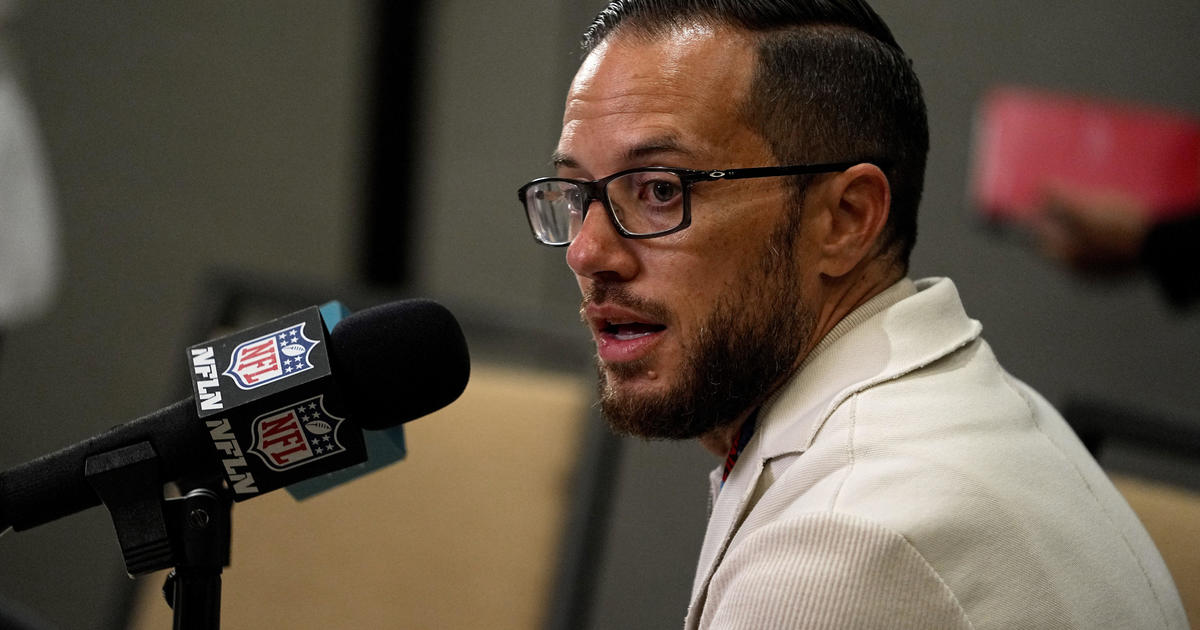Rescued Manatees Returned To The Wild
MIAMI (CBSMiami) – A pair manatees rescued from the state's southwest coast have been returned to the wild.
"Woodstock" was rescued from Port of The Islands, south of Naples, on January 7th, 2011. The adolescent female was orphaned after her mother died during the 2010-2011 winter season.
Woodstock was 5 feet long and weighed 150 pounds when she was rescued and taken to the Miami Seaquarium where she spent 11 months.
"She was an orphan, we did all the critical care, she did come in very cold, stressed we gave her antibiotics and fluid therapy," said Dr. Maya Rodriguez, Miami Seaquarium Veterinarian.
After nearly a year, Woodstock was moved from the Seaquarium to the Columbus Zoo and Cincinnati Zoo for further care and growth. She returned back last fall to undergo further pre-release conditioning with natural sea grass feedings. Today she weighs over 700 lbs and measures 8 feet long.
Tuesday morning, around 8:30 a.m., Woodstock was put into a metal box, hoisted out of a tank and placed into a truck for her journey home - on the coldest day of the year.
"We actually love it when it's this cold, she will really know that warm water area and it's going to have the most manatees," said Rodriguez. "She will have the most opportunity to meet other manatees, learn from them, migrate with them and eat with them."
Cheeno" was released with Woodstock. Cheeno was also a cold stress orphan from South West Florida currently at South Florida Museum originally at Lowry Park Zoo.
Woodstock and Cheeno were released in the Southwest Orange River area around Ft. Meyers. This area was one of the hardest hit areas for mortalities from the red tide epidemic that occurred in 2013. Last year there was a record breaking 17% mortality rate for manatees in the state.
Exposure to red tide, cold stress, and disease are all natural problems that can affect manatees. Human-caused threats include boat strikes, crushing by flood gates or locks, and entanglement in or ingestion of fishing gear.
The area where Woodstock and Cheeno were released was approved by the Florida Fish and Wildlife Conservation Commission.
"We are ecstatic every time we release one of these manatees and see them survive because they are survivors, it really feels good to be able to help them," said Rodriguez.
Before their release, both manatees were outfitted with satellite tracking belts so their movement can be monitored by biologists with the Manatee Rescue & Rehabilitation Partnership for a year. If Woodstock and Cheeno survive on their own, their trackers will be removed. The public can track their travels at WildTracks.org.



